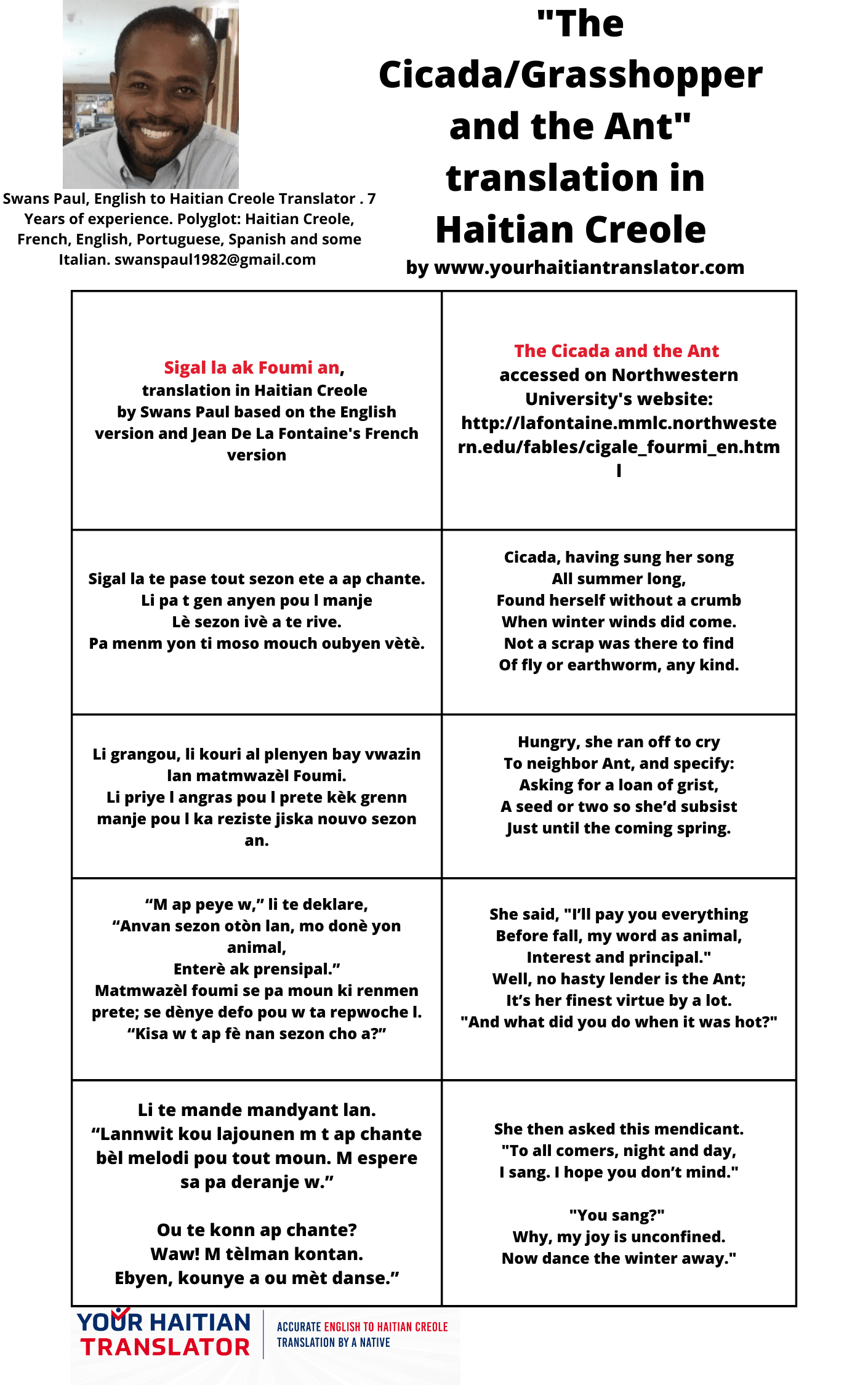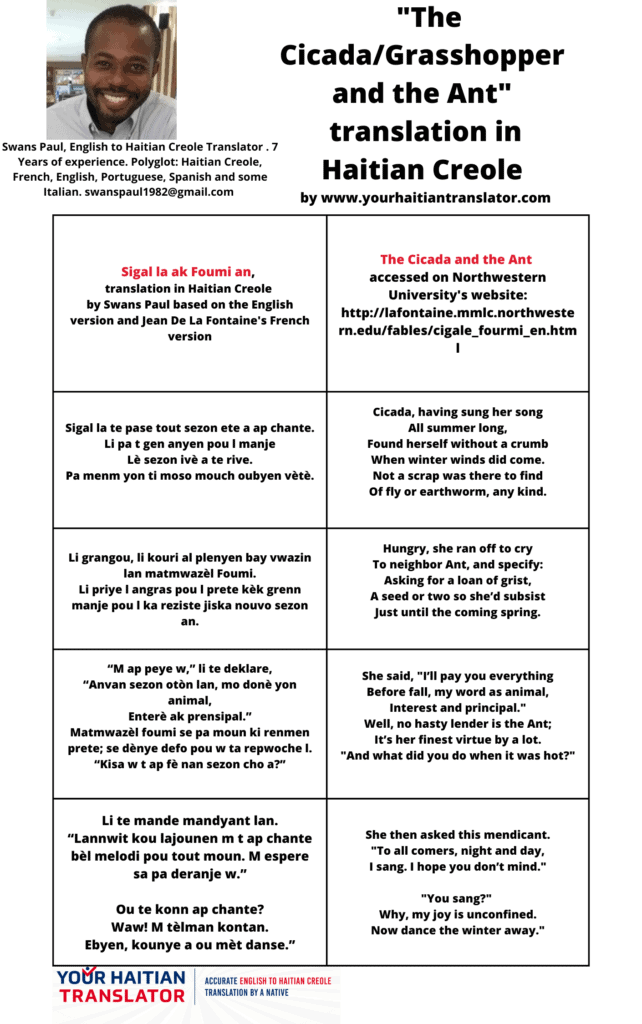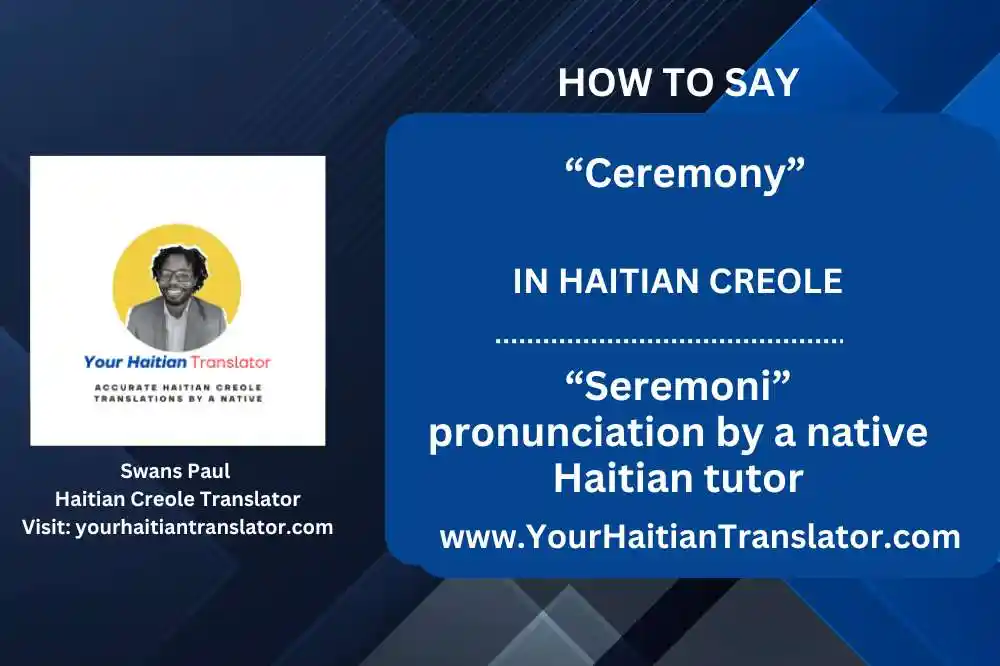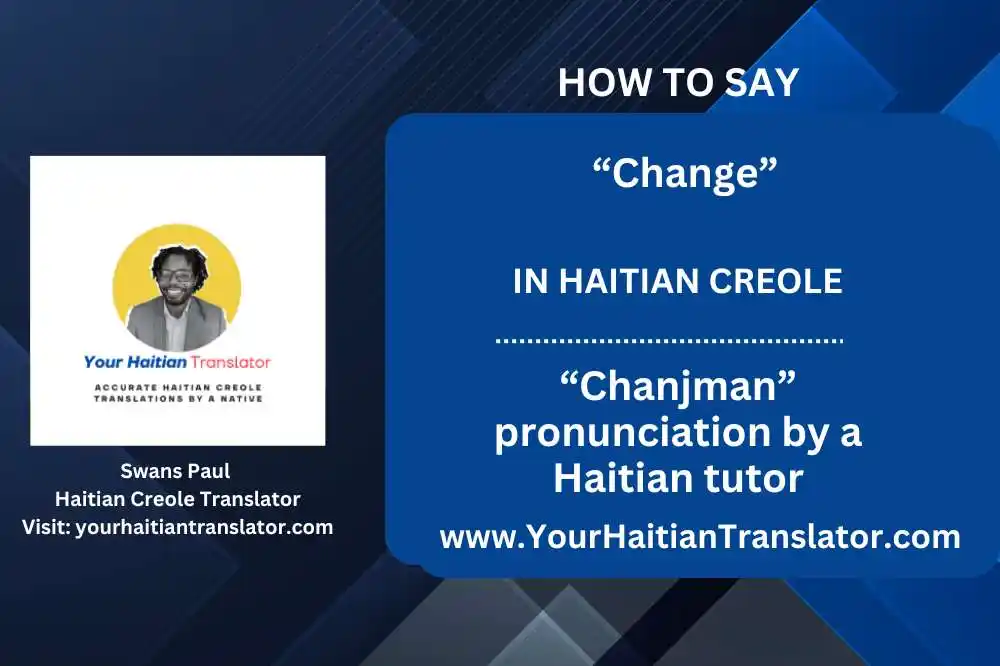

As a Haitian Creole translator, it’s my pleasure to publish this Aesop fable in Haitian Creole and make it available to the general public, at no cost, no sign up.
Furthermore, I am offering the bilingual version (English and Haitian Creole) of the fable (The Cicada/Grasshopper and the Ant) as an image that you can download and use in your classrooms.
Why is it important to make “The Cicada/Grasshopper and the Ant” available both in Haitian Creole text and audio?
These are the three main reasons.
1-Before publishing “The Cicada/Grasshopper and the Ant” in Haitian Creole, I did a quick search on Google. The search results didn’t offer a readily accessible version of this Aesop fable, until I published it myself on my Youtube channel (@yourhaitiantranslator). To change this situation, I decided to not only translate the fable and read it aloud in Haitian Creole, but also to make it 100% available at no cost.
2- When I was a child, I had to learn and study “Cicada/Grasshopper and the Ant” in French, using the Jean De Lafontaine version. Because back then, at some schools, speaking Haitian Creole in the classroom or in the school courtyard could get you punished. French was the compulsory language. And Haitian Creole was the marginalized language. Yes, it was forbidden to speak Haitian Creole in some Haitian schools, as recently as 40 years ago. If you were caught speaking in Haitian Creole, you would be punished and humiliated and be tasked to memorize some fables in French.
3- Consequently, there are very few books published in Haitian Creole, which is by the way the one true native language of all Haitians because no Haitian has to go to school in order to learn how to speak Haitian Creole. And the very few books that are published might present a formidable issue for educators and students: lack of accessibility. Sometimes, you just can’t find the content in Haitian Creole. Or if the content is available, you have to pay to get access to it.
4- Finally, I want to be part of the generation that makes it possible for Haitian children to study in their real mother tongue: Haitian Creole. Like Jean Knowledge is transmitted better and faster when it is transmitted in the language that the child is using every day: Haitian Creole for children living in Haiti.
To change this situation I plan on publishing more fables and other literary works in Haitian Creole and make them easily available, at no cost.
Of course, as a Haitian Creole translator, I hope to be your first option when it’s time to translate from English to Haitian Creole, but I also want to make sure there is easy access to works in Haitian Creole. Your choosing me as your go-to reference for Haitian Creole translations makes it easy to continue publishing useful content on this website.
The English version of “the Cicada and the Ant” I am using was obtained from Nortwestern University’s website. You can find it here:
Feel free to share my Haitian Creole version of “the Cicada and the Ant” with your students and colleagues.
Without further ado, here’s the video where you can listen to “The Grasshopper/Cicada and the Ant” in Haitian Creole audio.

Swans Paul, Haitian Creole Translator, (and a polyglot who speaks Haitian Creole, French, English, Brazilian-Portuguese, Spanish, and some Italian), born in Haiti and college-educated in the US. Over 9 years of experience in Haitian Creole translation, transcription, editing. Worked as a Haitian Creole translator in two movies: the Will Smith Movie: Emancipation; and “The Exorcist: Believer”.
Related Posts
“Ceremony” translates as “Seremoni” in Haitian Creole + “Seremoni” pronunciation in Haitian Creole Meaning: “Ceremony” = “Seremoni” Pronunciation: “Seremoni” Pronunciation in Haitian Creole by a native Haitian can be heard [...]
“Change” translates as “Chanjman” in Haitian Creole + “Chanjman” pronunciation in Haitian Creole Meaning: “Change” = “Chanjman” Pronunciation: “Chanjman” Pronunciation in Haitian Creole by a native Haitian can be heard [...]



